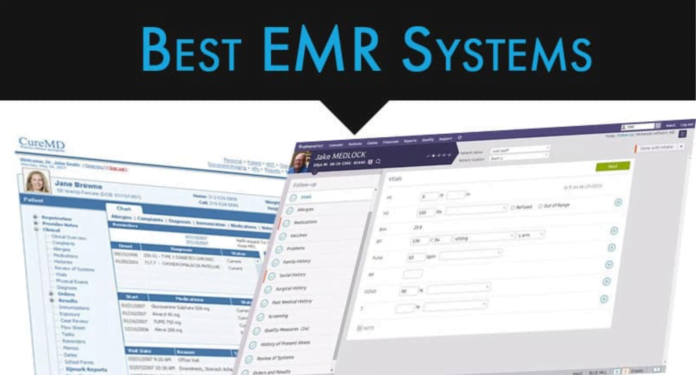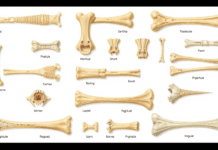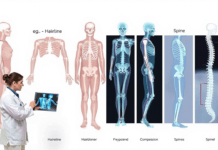Discover how EMR Systems are changing healthcare by enhancing patient care, data management, and operations. Here, learn about the key benefits, features, and impact of Electronic Medical Records in modern healthcare.
In this newly emerging field of health care, technology is a key function in the advancement of patient care, formulation of processes and optimization of health care results. Some of the developments and advancements in the main area include: one of the innovations is the Electronic Medical Records (EMR) system.
EMR Systems have developed into crucial tools in health care organizations that offer online interfaces for maintaining and administering patient information, records and treatment history. These guides introduce the reader to EMR systems and include the fundamentals of the systems, the advantages and the role in future health care.
What is an EMR System?
An EMR system is a system that uses electronic means to capture, store and report on patient medical records. Such records may contain; patient history, diagnosis, treatment, prescriptions, tests, and results amongst other things. Unlike traditional methods EMR Systems provides easier access to data for healthcare professionals that can enhance accuracy of diagnosis as well as the subsequently required treatment.
EMR Systems used in hospitals not only act as a database for storing patient data but also ease secure communication between healthcare experts and allow real-time updates and collaboration.
Key Features of EMR Systems
EMR systems are ready with diverse features that streamline healthcare management. Some of the important features include
Electronic Prescribing
Let healthcare providers send medications electronically to pharmacies, decreasing errors and enhancing patient protection.
Patient Scheduling
EMR software Systems streamline patient appointment scheduling, decreasing administrative burdens and improving patient go-with-the-flow in hospitals.
Clinical Documentation
Facilitates correct and well-timed medical documentation, making sure that patient data are updated with every interaction.
Billing and Coding Integration
EMR systems can combine with billing and coding software, making the reimbursement system quicker and greater efficient.
Lab Integration
EMR Systems combine with lab testing facilities to provide real-time access to affected person test results, expediting diagnoses and treatment plans.
Decision Support Tools
Many EMR systems feature clinical decision support tools that help carriers make more knowledgeable decisions primarily based on evidence-based total recommendations.
Benefits of EMR systems
EMR systems provide numerous benefits that improve the overall quality of healthcare delivery
Improved patient Care
With instantaneous access to complete patient data, healthcare providers could make more knowledgeable choices, enhancing the quality of care. EMRs offer immediate access to lab outcomes, medication histories, and previous diagnoses, decreasing the chance of medical errors.
Improved Data Security
As compared to paper-based records, EMR systems offer advanced data protection. Patient information is encrypted and kept in secured databases, lessening the threat of unauthorized entry. Moreover, EMRs have audit paths that let healthcare organizations to track who has accessed patient data.
Streamlined Workflows
By way of automating administrative responsibilities along with patient scheduling, billing, and medical documentation, EMR systems lessen the workload on the healthcare team. This automation allows carriers to spend extra time with patients and less time handling paperwork.
Multiplied performance
The automation of ordinary duties and the virtual storage of patient data end in increased operational efficiency. For example, lab results can be automatically uploaded to the affected person’s record, and providers can quickly evaluate this data, making treatment choices quicker.
Higher Coordination among Healthcare providers
EMR systems permit seamless communication between healthcare specialists. More than providers can access and replace a patient’s record in real-time, facilitating better collaboration and continuity of care, mainly in multi-distinctiveness instances.
Reduction in cost
EMR systems help healthcare providers reduce charges by minimizing paperwork, enhancing affected person float, and stopping duplicate tests and tactics. Moreover, streamlined billing tactics lessen administrative prices and improve revenue cycles.
EMR vs. EHR- what is the distinction?
Both Electronic Medical Records and Electronic Health Records are often used convertible; there is a difference between the two. EMR Systems are designed to be utilized in single healthcare organizations, saving patient information from one practice or staff. On the other hand, HER systems provide a better approach, allowing for data transfer over various healthcare organizations. This interoperability is an important feature in enhancing care coordination among multiple providers.
Challenges of enforcing EMR systems
No matter the numerous advantages, imposing an EMR system can present some challenges, which include
Cost
The basic price of EMR systems, such as hardware, software programs, and learning, may be high. Small practices may discover it hard to bear the premature prices associated with imposing a new EMR system.
Training and Adoption
Healthcare teams of workers have to undergo thorough training to use EMR systems successfully. Resistance to trade and the absence of technical knowledge can avert the whole adoption of the system.
Data Migration
Transitioning from paper data or outdated systems to a new EMR system can be time-consuming and needs careful planning to ensure certain information is kept and managed throughout the migration manner.
Protection concerns
While EMR systems enhance data safety, they are additionally susceptible to cyber threats. Healthcare services have to ensure that their EMR systems are regularly updated with ultra-modern security features to secure patient-sensitive data.
The future of EMR systems
As healthcare keeps evolving, EMR Systems will play a more and more important role in enhancing patient care, decreasing medical errors, and enhancing operational performance. With improvements in Artificial Intelligence (AI) and system learning, future EMR systems will probably comprise predictive analytics and choice-help tools to help providers in diagnosing conditions and growing treatment plans.
Additionally, the transformation in the direction of telemedicine and remote healthcare will in addition integrate EMR systems, making an allowance for seamless patient management, even in virtual settings.
Bottom Line
EMR software Systems are redesigning the healthcare industry through coming up with efficient, competitive and hack proof when it comes to managing information pertaining to patients. In this way, EMRs expand executive needs and improve patients’ data availability to system exceptional care and promote higher healthcare outcomes.
However, when it comes to implementation there are challenging tasks to perform and this means that although the costs cannot be overlooked, the long term benefits of implementing an EMR system cannot be overemphasized thus making it more of a necessity than a cost to the health care providers.
You can also experience about healcard Hospital Management Software and Clinic Management Software and click for schedule a demo for Management Software.





